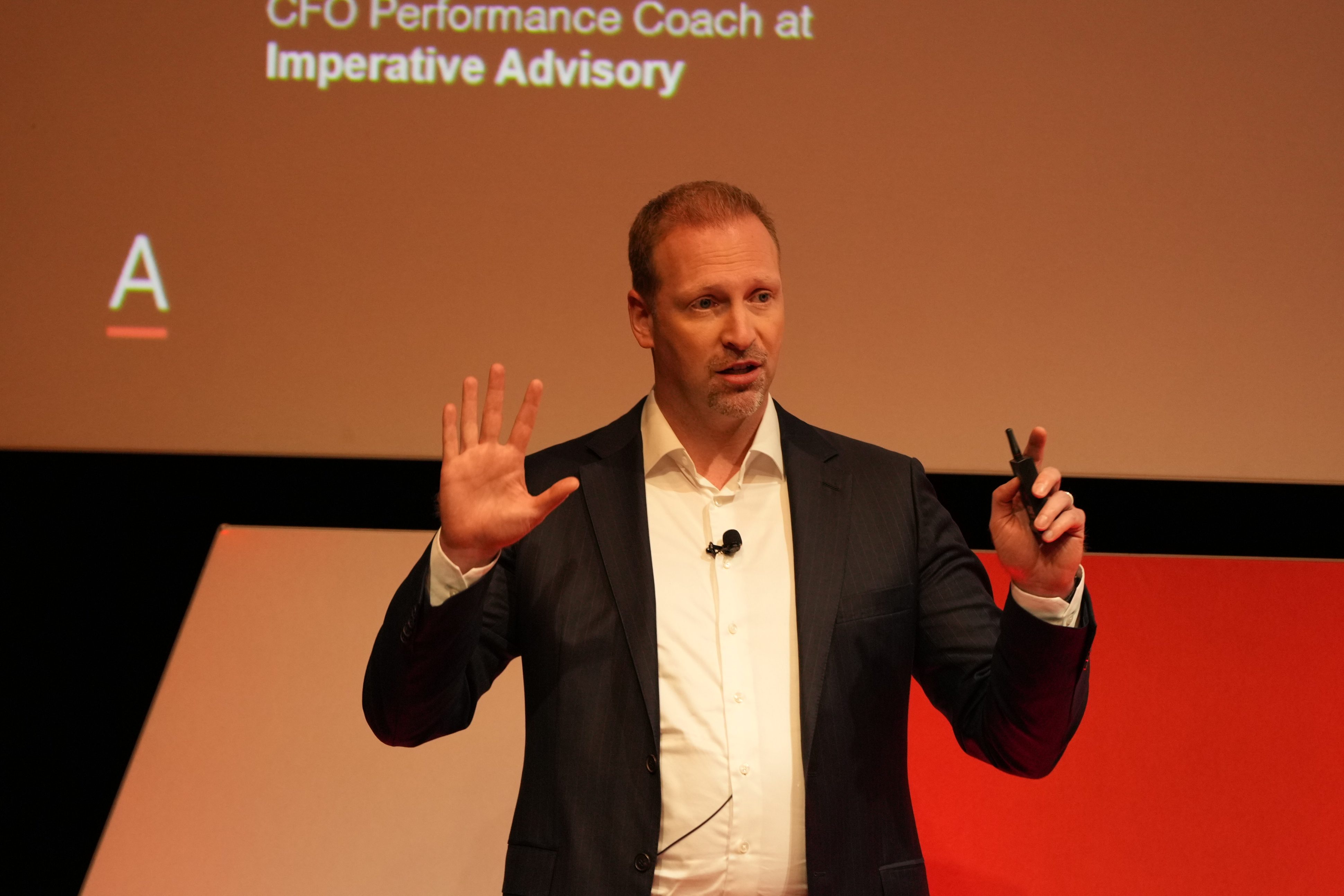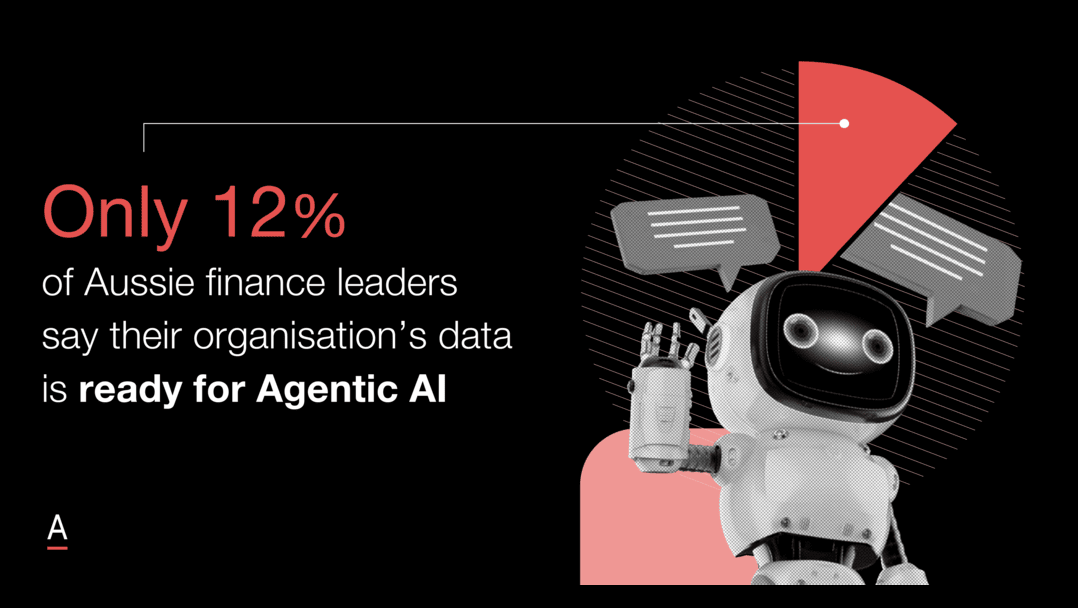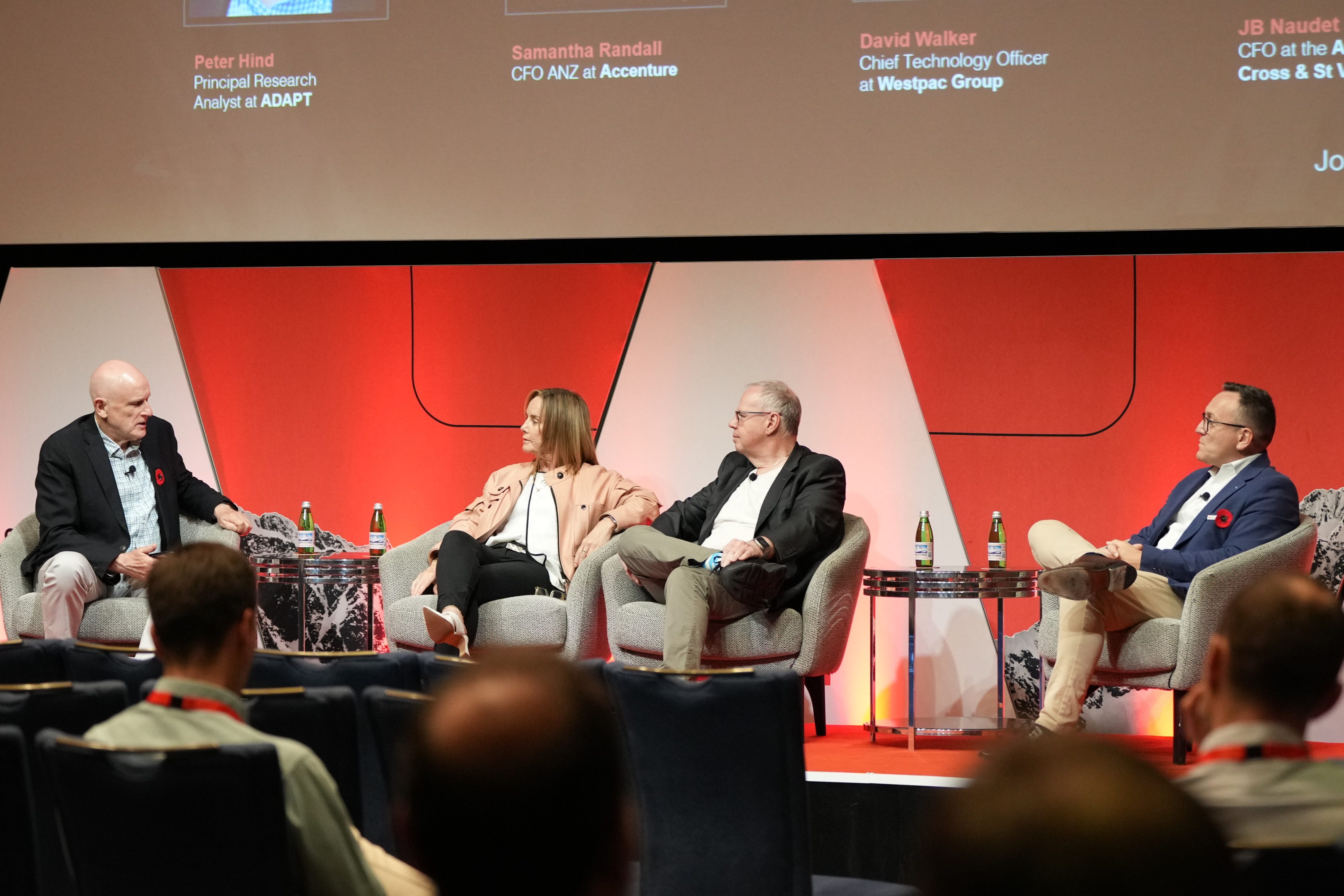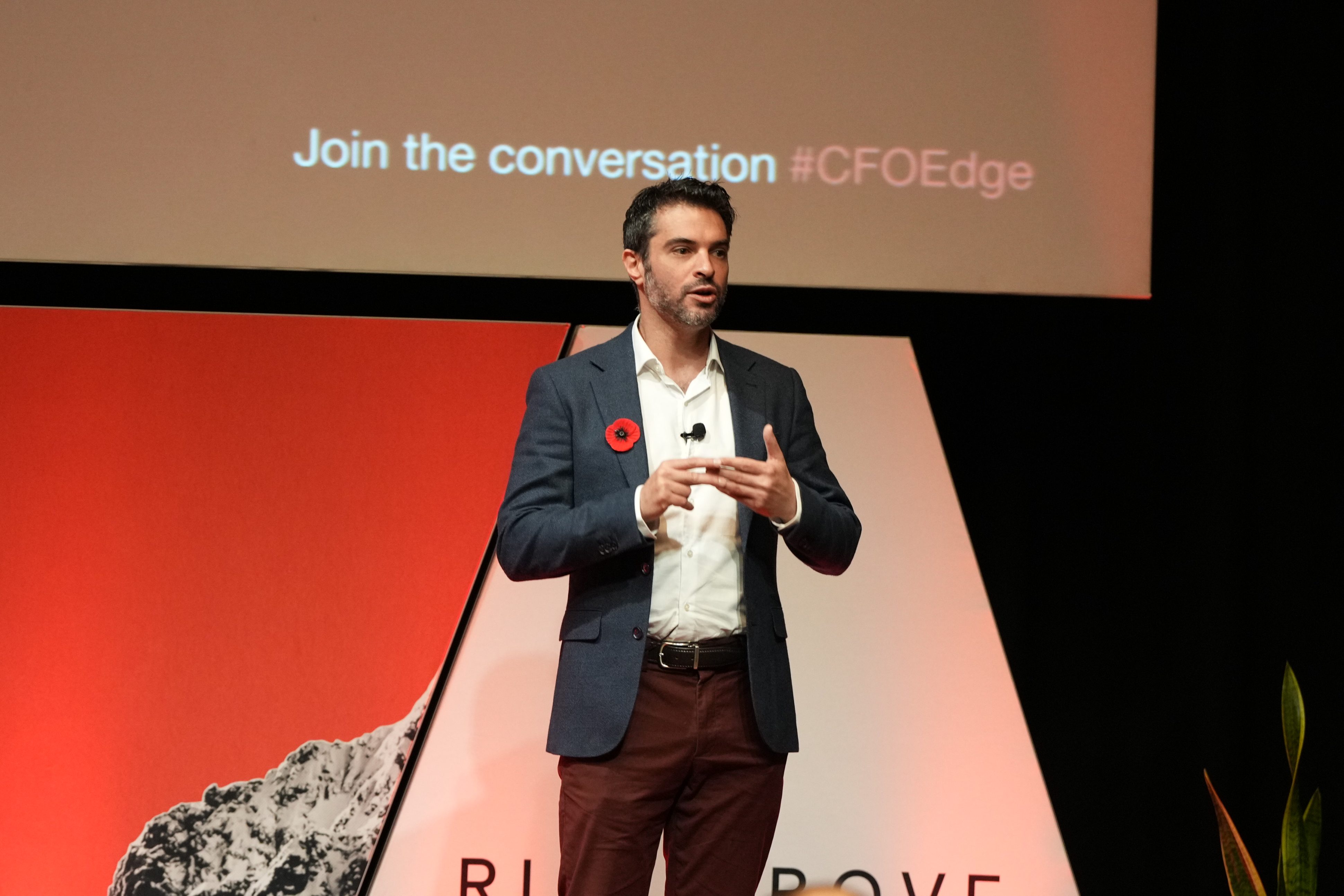In this CFO Edge session, Florian Pecher, CFO Performance Coach at Imperative Advisory, shows how personality, presence, and team collaboration give CFOs a strategic edge in an AI enabled environment.
He emphasises the importance of the human edge in the age of AI, drawing on his experience in cross-border M&A advisory with HSBC.
He argues that what sets humans apart is not individual capability, but the ability to work effectively in teams, underpinned by compassion, presence, and emotional intelligence.
Florian highlights that even at full attention, the human brain filters out over 90% of stimuli, and distraction further reduces effectiveness.
As ADAPT data suggests human capability is the missing link.
Despite rising adoption, 80% of finance leaders say AI ROI remains unclear, and only 6% of organisations provide mandatory AI awareness training, a major barrier to responsible, value-driven AI use.
By reclaiming seven and a half to ten hours per week from low-value tasks, leaders can focus on purposeful work, enhancing both individual and team performance.
Florian outlines the transformation of the CFO role, noting that 75% of positions are undergoing major reinvention in the next few years.
He introduces a model of performance built around three elements: the “who”, the individual and their personality traits, the “how”, the approach to collaboration and leadership, and the “what”, the tasks and actions that drive outcomes.
He stresses that high-performing individuals balance relentless task focus (“compete”) with smooth collaboration (“collaborate”) and rigorous problem-solving (“innovate”), while maintaining adaptability and mindfulness to regulate stress.
Techniques such as breathwork and centring practices help leaders maintain optimal nervous system activation, avoiding burnout and sustaining performance under pressure.
Florian also discusses the role of personality in team effectiveness, using rigorous trait-based models like the Hogan Personality Inventory to map individual and team strengths and blind spots.
He illustrates how understanding these predispositions enables teams to build trust, psychological safety, and complementary dynamics, improving overall decision-making and innovation.
He concludes by urging leaders to develop strategic self-awareness, deliberately choosing how to show up in any situation, co-creating outcomes with their teams, and integrating the “who, how, and what” framework to maximise both personal and collective performance.
Key takeaways:
- Human edge and presence: Individual capability is less important than how teams collaborate and reclaiming 7.5–10 hours per week from low-value tasks allows leaders to focus on purposeful work, enhancing performance.
- CFO role transformation: 75% of roles are undergoing major reinvention; high performance requires balancing task focus (“compete”), smooth collaboration (“collaborate”), and rigorous problem-solving (“innovate”), supported by mindfulness and stress regulation techniques.
- Personality-driven team effectiveness: Understanding individual and team personality traits through rigorous assessments enables strategic self-awareness, trust-building, and complementary dynamics, improving decision-making and innovation.





























